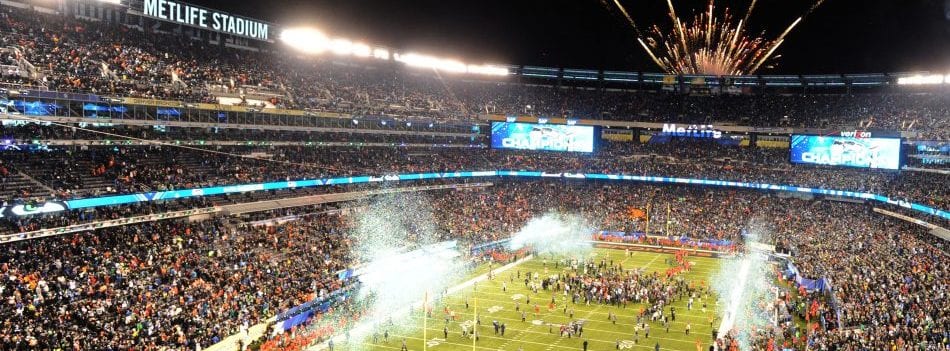The question of Super Bowl tickets – specifically those for the 2014 game held at New Jersey’s MetLife Stadium – will be taken up by the New Jersey Supreme Court, according to an article in the New Jersey Law Journal. At question is whether or not a state law was violated by the league’s distribution of tickets for its marquee event. The law makes it unlawful for persons controlling ticket sales to withhold from the general public more than five percent of available tickets to an event.
Given that the league and its teams control the tickets for the annual championship with an iron fist – even more so with the recent acquisition of secondary marketplace PrimeSeats by NFL On Location – it seems unlikely that 95% of the tickets were available to the general public by any reasonable metric.
The class action suit, Finkelman v. NFL, was filed in January 2014 on behalf of a class of individuals who bought tickets to the event at more than face value. It claims that 75 percent of tickets are distributed among the 32 teams, which then distribute them as part of luxury packages or to other insiders. Tickets not sold directly through the league’s channels often wind up sold through ticket brokers anonymously. The suit claims that if tickets were made available to fans in the first place, fans would be able to source tickets through fan-to-fan systems rather than the secondary market and save money. The named plaintiff Josh Finkleman says he purchased two tickets with a face value of $800 each for $1,200 more than that figure on the secondary market.
According to attorney Bruce Nagel, who represents the class, the NFL has already admitted violating the New Jersey statute by distributing the small number of tickets for the public through a lottery. He believes that the damages could reach the hundreds of millions if the expenses incurred by ticket buyers due to the policy are trebled under the Consumer Fraud Act.
While the case is an interesting one to keep an eye on, it may not have a great deal of impact on the sale of Super Bowl tickets as a whole even if the plaintiffs are successful in proving their case. Venues and promoters have successfully fought off any legal limit on holdbacks or even transparency about how many tickets are available to the general public. This happened most recently in Ontario, where portions of recent ticket sale regulations dealing with transparency on public availability of tickets were dropped under heavy industry pressure at the last minute.
But, it’s a fair bet that a decision in favor of the plaintiffs would spell doom for New Jersey ever hosting the Super Bowl again.




